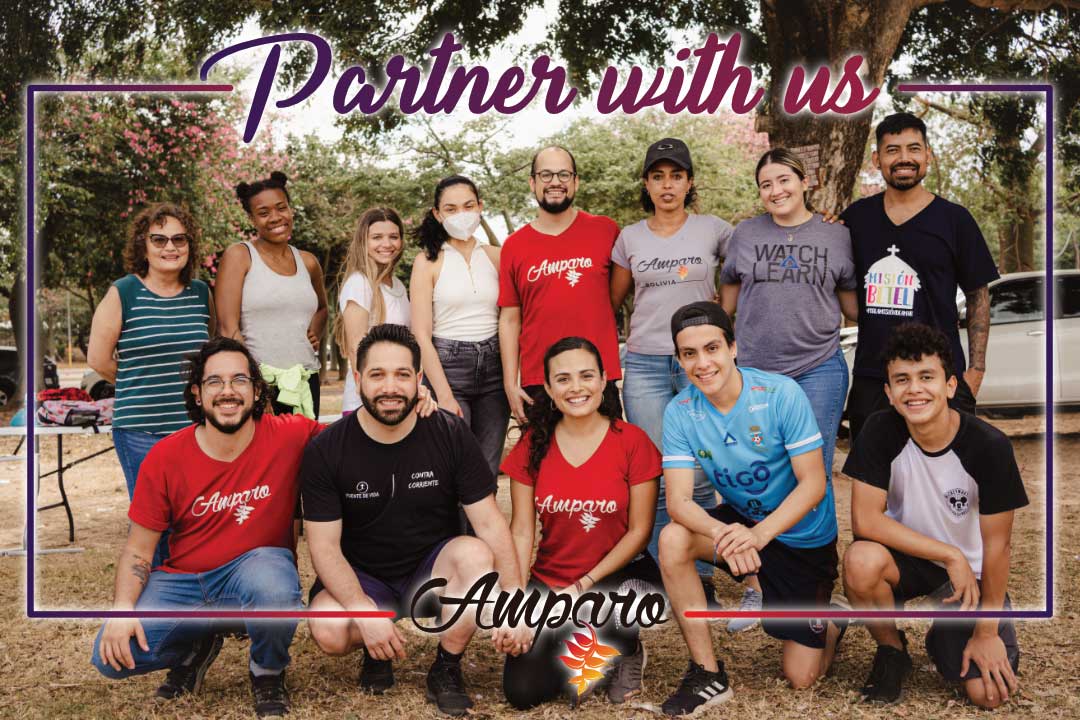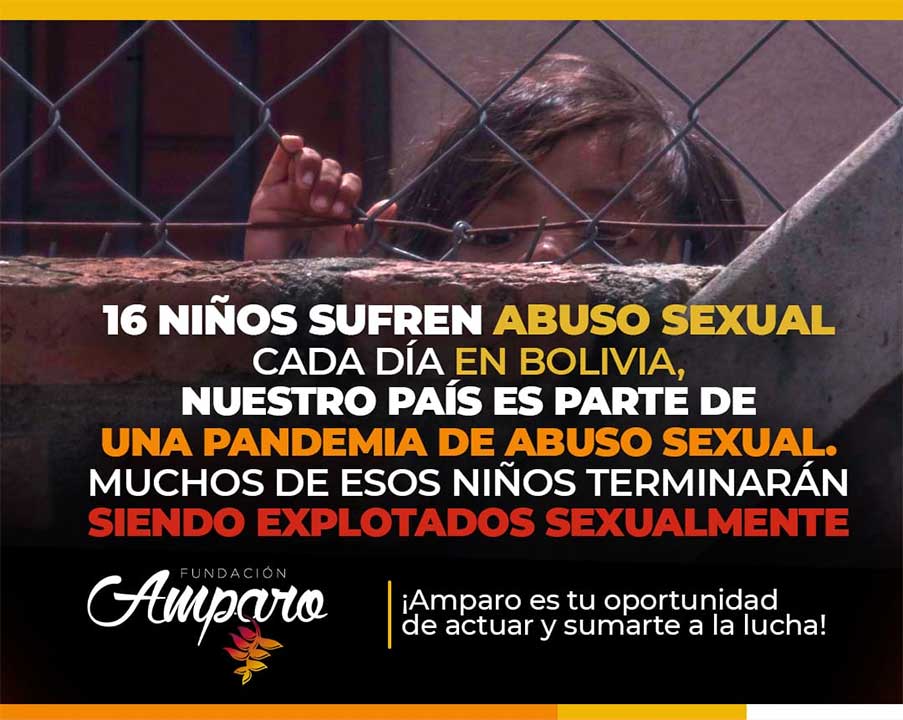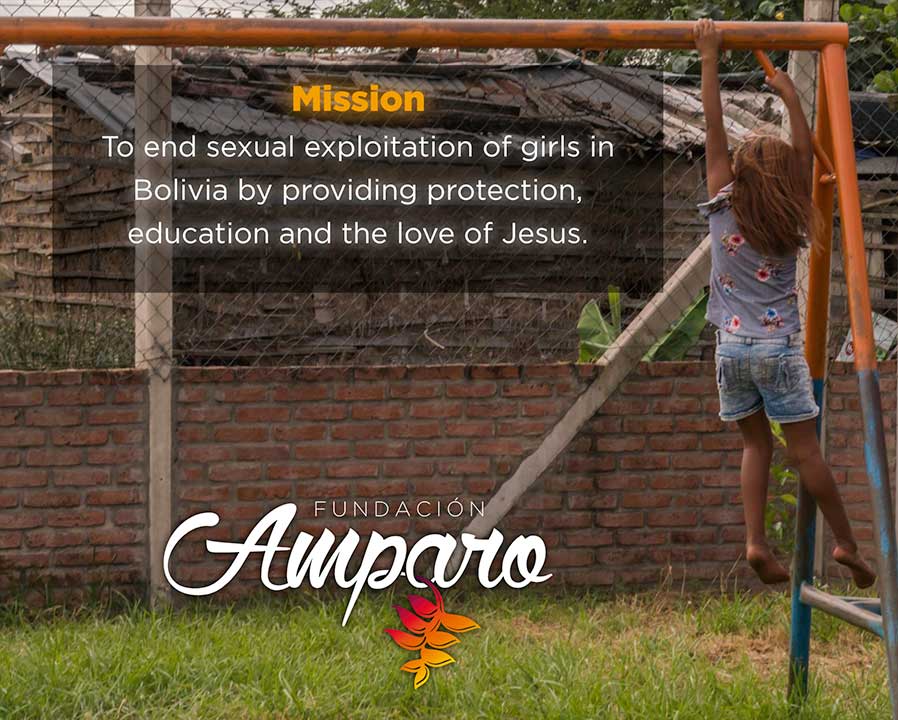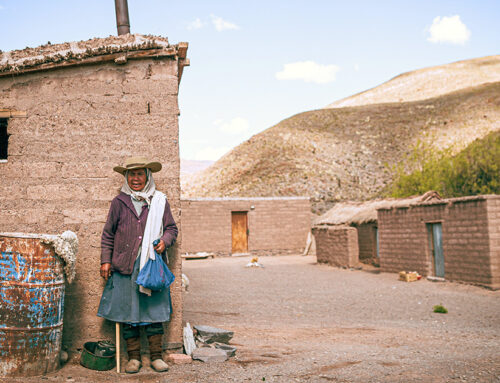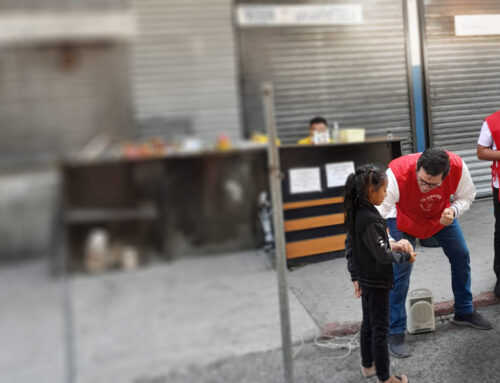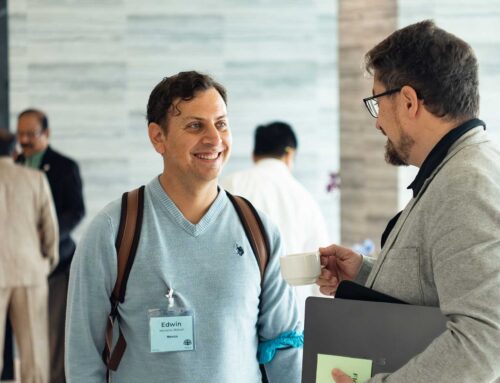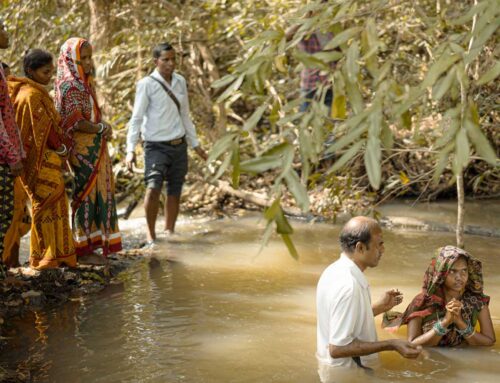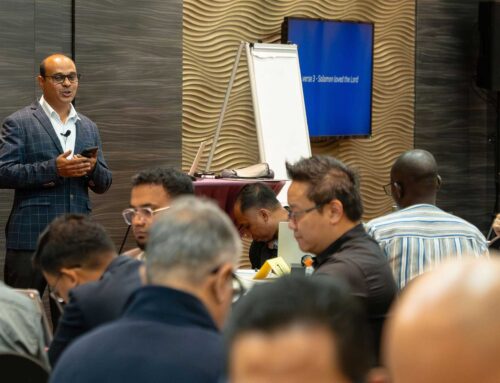Fighting Modern-Day Slavery in Bolivia
Modern-day slavery has become a leading crisis throughout our world today. Of the estimated 50 million people enslaved around the world, the largest targets are underprivileged communities and children.
In Bolivia, one in three girls will be sexually abused before their 18th birthday. This cycle of abuse and sexual exploitation has continued due to dysfunctional families, lack of education and access to resources, high crime and drug rates, and financial need.
It is from this community’s desperate need that Amparo was born. Amparo, a Spanish word meaning “refuge” or “shelter” is a non-profit organization that “strives to end the sexual exploitation and trafficking of girls in Bolivia by providing protection, education, restoration, and the love of Jesus.” Their mission is to serve Bolivian children with two different programs: homes for vulnerable girls and community outreach.
The homes for girls are meant to be “family style living ” made up of a group of 12 girls — survivors of sexual exploitation — who live in the home 24/7 and are provided with everything that is needed for housing, food, education, spiritual growth, etc. Due to the importance of relational trust in Bolivian culture, the goal of these girls’ homes is to build a trusting, close relationship to instill safety, stability, and a true home for the children.
The other program, community outreach, is designed to equip and provide tools for prevention. The community outreach events are tailored around tutoring and different workshops that teach the girls a new skill. Some of these workshops include sewing, painting, and cooking. Due to the nature of the situations that these young girls are put through, the people who serve within these two programs are mainly women, but there are men who serve on the administrative staff and volunteer as well. These volunteers provide godly male figures for the children, who aren’t used to seeing such love, service, and kindness displayed.
Haggai leader Aquiles is one of these godly figures aiming to break the cycles of abuse in his home country of Bolivia. He has worked with Amparo for seven years and now serves as the national director.
Aquiles, an economics and ministry scholar, has played the role in obtaining the organization’s legal nonprofit status and has been integral in the growth of the ministry’s two programs. . Since he committed his life to Christ, Aquiles has devoted himself to following Him in service and his full time job. He is part of his church’s pastoral team where he is involved with serving orphans, the homeless, and leading a young men’s discipleship group. He has also spent over a decade teaching English, the Bible, and different leadership workshops around Bolivia. Through this passion that God has given him, he plans to establish Amparo’s sustainability and compliance, develop leadership within the non-profit, and even has plans to expand Amparo to Ethiopia. But when asked, at the end of the day his main hope is to become a more faithful servant to the Lord and to others around him.
Written by Sierra McKinnis
Fighting Modern-Day Slavery in Bolivia
Modern-day slavery has become a leading crisis throughout our world today. Of the estimated 50 million people enslaved around the world, the largest targets are underprivileged communities and children.
In Bolivia, one in three girls will be sexually abused before their 18th birthday. This cycle of abuse and sexual exploitation has continued due to dysfunctional families, lack of education and access to resources, high crime and drug rates, and financial need.
It is from this community’s desperate need that Amparo was born. Amparo, a Spanish word meaning “refuge” or “shelter” is a non-profit organization that “strives to end the sexual exploitation and trafficking of girls in Bolivia by providing protection, education, restoration, and the love of Jesus.” Their mission is to serve Bolivian children with two different programs: homes for vulnerable girls and community outreach.
The homes for girls are meant to be “family style living ” made up of a group of 12 girls — survivors of sexual exploitation — who live in the home 24/7 and are provided with everything that is needed for housing, food, education, spiritual growth, etc. Due to the importance of relational trust in Bolivian culture, the goal of these girls’ homes is to build a trusting, close relationship to instill safety, stability, and a true home for the children.
The other program, community outreach, is designed to equip and provide tools for prevention. The community outreach events are tailored around tutoring and different workshops that teach the girls a new skill. Some of these workshops include sewing, painting, and cooking. Due to the nature of the situations that these young girls are put through, the people who serve within these two programs are mainly women, but there are men who serve on the administrative staff and volunteer as well. These volunteers provide godly male figures for the children, who aren’t used to seeing such love, service, and kindness displayed.
Haggai leader Aquiles is one of these godly figures aiming to break the cycles of abuse in his home country of Bolivia. He has worked with Amparo for seven years and now serves as the national director.
Aquiles, an economics and ministry scholar, has played the role in obtaining the organization’s legal nonprofit status and has been integral in the growth of the ministry’s two programs. . Since he committed his life to Christ, Aquiles has devoted himself to following Him in service and his full time job. He is part of his church’s pastoral team where he is involved with serving orphans, the homeless, and leading a young men’s discipleship group. He has also spent over a decade teaching English, the Bible, and different leadership workshops around Bolivia. Through this passion that God has given him, he plans to establish Amparo’s sustainability and compliance, develop leadership within the non-profit, and even has plans to expand Amparo to Ethiopia. But when asked, at the end of the day his main hope is to become a more faithful servant to the Lord and to others around him.
Written by Sierra McKinnis
Fighting Modern-Day Slavery in Bolivia
Modern-day slavery has become a leading crisis throughout our world today. Of the estimated 50 million people enslaved around the world, the largest targets are underprivileged communities and children.
In Bolivia, one in three girls will be sexually abused before their 18th birthday. This cycle of abuse and sexual exploitation has continued due to dysfunctional families, lack of education and access to resources, high crime and drug rates, and financial need.
It is from this community’s desperate need that Amparo was born. Amparo, a Spanish word meaning “refuge” or “shelter” is a non-profit organization that “strives to end the sexual exploitation and trafficking of girls in Bolivia by providing protection, education, restoration, and the love of Jesus.” Their mission is to serve Bolivian children with two different programs: homes for vulnerable girls and community outreach.
The homes for girls are meant to be “family style living ” made up of a group of 12 girls — survivors of sexual exploitation — who live in the home 24/7 and are provided with everything that is needed for housing, food, education, spiritual growth, etc. Due to the importance of relational trust in Bolivian culture, the goal of these girls’ homes is to build a trusting, close relationship to instill safety, stability, and a true home for the children.
The other program, community outreach, is designed to equip and provide tools for prevention. The community outreach events are tailored around tutoring and different workshops that teach the girls a new skill. Some of these workshops include sewing, painting, and cooking. Due to the nature of the situations that these young girls are put through, the people who serve within these two programs are mainly women, but there are men who serve on the administrative staff and volunteer as well. These volunteers provide godly male figures for the children, who aren’t used to seeing such love, service, and kindness displayed.
Haggai leader Aquiles is one of these godly figures aiming to break the cycles of abuse in his home country of Bolivia. He has worked with Amparo for seven years and now serves as the national director.
Aquiles, an economics and ministry scholar, has played the role in obtaining the organization’s legal nonprofit status and has been integral in the growth of the ministry’s two programs. . Since he committed his life to Christ, Aquiles has devoted himself to following Him in service and his full time job. He is part of his church’s pastoral team where he is involved with serving orphans, the homeless, and leading a young men’s discipleship group. He has also spent over a decade teaching English, the Bible, and different leadership workshops around Bolivia. Through this passion that God has given him, he plans to establish Amparo’s sustainability and compliance, develop leadership within the non-profit, and even has plans to expand Amparo to Ethiopia. But when asked, at the end of the day his main hope is to become a more faithful servant to the Lord and to others around him.
Written by Sierra McKinnis


